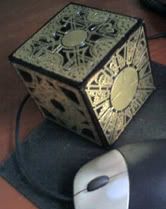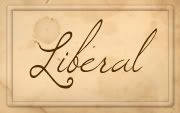James Frey has written a wonderful memoir entitled A Million Little Pieces. It's a candid look into the sad - and sometimes grotesque - world of an addict and his road to recovery. But that's not why I'm writing about it.
James Frey has become the patsy, or tackle dummy, of the media as of late based on allegations and truths that Mr. Frey fabricated a couple events in the retelling of his story of a crawl back to grace. Even though Oprah (and her book club) supported Frey on "Larry King Live," the vultures are still out to roost.
As a writer myself, I cannot sympathize with what I can only refer to as sanctimonious bullshit being spouted by the mainstream media. Allow me to qualify that: the sanctimonious bullshit being spouted by the mainstream media is both poorly informed and poorly researched, attempting to apply a black and white standard to a form that has existed in grey for as long as the form has existed. I listened to cries of oh-so-holy newscasters and writers aching and pining for purity, exclaiming "What has he done?" "Why would someone do this?" and "He has tainted the genre!"
If there's an alcoholic out there moving towards recovery that sees a news item and says "Well, Frey lied about this part of the story, so I'm going back to the bottle," then that person needs to reevaluate their life.
Where's the victim?
The fact that this is a 95% true tale of redemption and salvation (without the intervention of God, which has got to piss off the AA folks) garners very little attention from the critics. That's right: after the whining and pouting is done, the main crux of the argument is that the book should be contained in the "fiction" section.
If you will, dear reader, take a quick sideline to another memoir. This one is entitled Lying by Lauren Slater. While the heading on the book does say "A Metaphysical Memoir," it does not imply that it is not a memoir. It is a work of the craft of writing, using several different conventions to finally leave us, at the end of the story, with the distinct impression that this entire journey may be an exercise in - what else? - lying. To garner attention? To fool us? To draw a grey line from black to white? I'm sure that there are more anal analysts to conquer those questions.
This wonderful, telling book is in contrast to the current media wisdom, but pushes the real question to the publishing industry:
Where do you draw the line?
Are a couple of quotes pulled from memory enough to make it fiction? Is it intention to fabricate? How can we tell?
And the point is: we cannot tell. We cannot pull the sap from the tree of knowledge, taste it, and judge it bitter or sour any more than we can read true fiction and not want to believe that those events are actually happening. The stories are inspiring, are telling, and in James Frey's case, may just pull lives from the potential of the gutter. It's gotten so bad that Oprah's new book choice, Night by Elie Wiesel has now been sought for certification of reality (because Holocaust survivors are so apt to exaggerate their experiences to make the starvation and death more poignant - was this brought on by President Ahmadinejad?).
Every day people pull meaningful information from seemingly meaningless happenings in omens, superstitions, and synchronicity. Sometimes, the public ventures into the world of reading stories for inspiration. If those books are in one section of Barnes and Noble or another, I don't care. I have to wander around half of the store either way to find the right section. The meaning is found in the words, whether those words are remembered, completely made up, or they find some grey space somewhere in between.
Wednesday, January 25, 2006
Subscribe to:
Comments (Atom)







